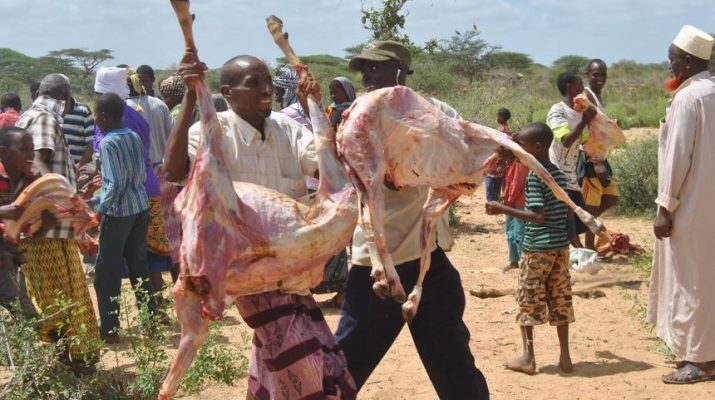In the Past 10 months the country has been faced with drought disaster which affected thousands of Kenyans. To make matters worse the weather forecaster last week announced that the drought situation would persist for over six months a situation that has raised alarm on the fate of the millions of victims already affected by the disaster.
The alarm also comes a time when the Food and Agriculture organization has appealed for US dollars 1 billion (SH. 102 billion) to feed more than 40 million starving people in drought stricken countries worldwide.
Kenya is not in the list of the world’s most severe countries affected by the disaster but the situation in some of the parts affected particularly the remotest parts which are not accessible is worrying.
Latest statistics from the Kenya Red Cross society indicates that over 2.4 million Kenyans shall be starving due to the disaster by April this year.
Among those affected and whose story is rarely told or shown in pictures are over 120,000 pastoralists in Tanariver County who live largely in the remote areas due to the nature of their nomadic lifestyle and culture.
Generally they are known to suffer loses of their livestock which die as a result of the extreme drought due to lack of pasture and water.
In the ongoing drought the pastoralists have experienced losses of thousands of livestock ranging from cattle, goats, sheep and even donkeys due to the impact of the drought and it is feared that the numbers will rise in a month’s time if it does not rain.
What is worrying most is that pastoralists who are nomads live in furthest end of the county a place where they can easily access water but never easily accessible by even government authorities as frequent as those near towns.
Records of their problems, deaths of their livestock is little known as even livestock officers in the county have never been able to reach the areas as frequently as required making it even more difficult to conduct a database of the number of livestock lost.
Public health officers also due to the vastness of the areas where pastoralists stay cannot visit them to establish the exact challenges faced by the nomadic people.
This has left them feel abandoned and as if they are not living in Kenya as they put it in their own perspective.
With the drought people have nothing to depend on and are left to suffer alone in their homesteads.
Beneficiaries interviewed said the destocking program was key in helping them get funds for buying food, accessing medical services and moresaw taking their children to school.

